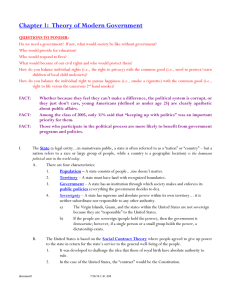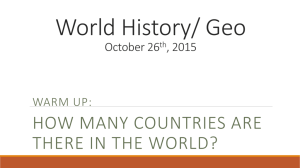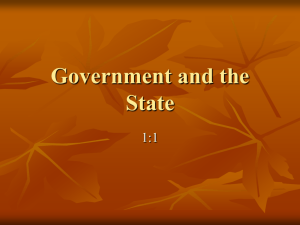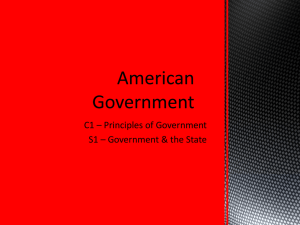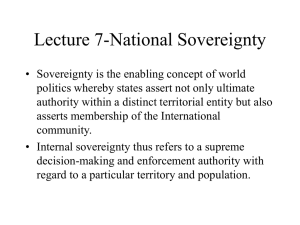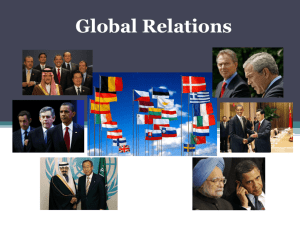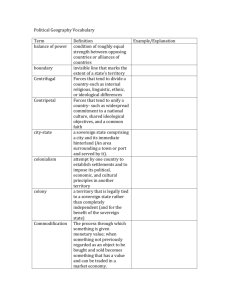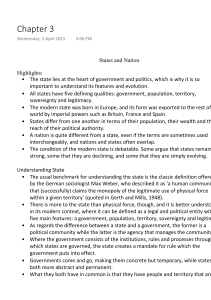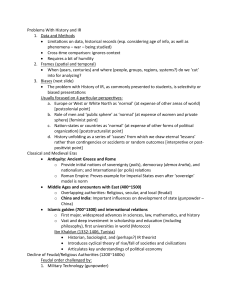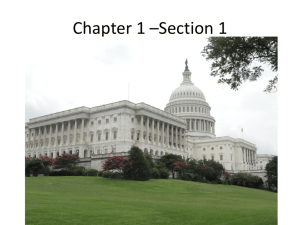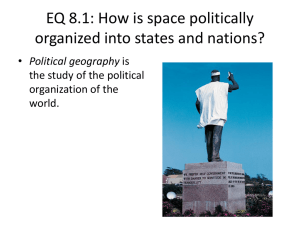Declining State Authority: Susan Strange Analysis
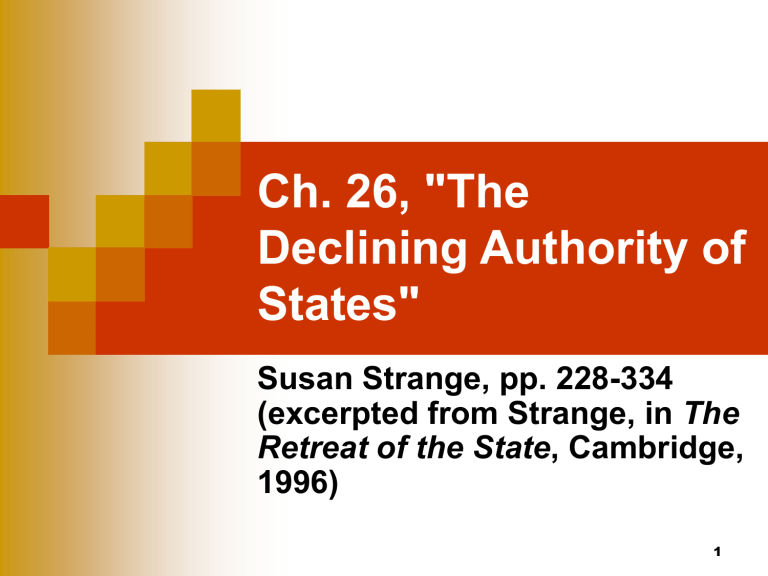
Ch. 26, "The
Declining Authority of
States"
Susan Strange, pp. 228-334
(excerpted from Strange, in The
Retreat of the State, Cambridge,
1996)
1
State sovereignty is under attack
Impersonal forces of world markets are now more powerful than the states to whom ultimate political authority over society and economy is supposed to belong
Authority is shifting from states to other institutions, both above and below the state – to international organizations and to local and regional bodies
2
State sovereignty
"A state (more commonly called "gov’t" in the USA) is the sovereign authority in a specified territory, with the right to use force both to maintain internal order and to defend its territory against aggression. Sovereignty, in turn, implies that the state is the ultimate authority in its territory, exercising legal jurisdiction over its citizens and the groups and organizations they form in the conduct of daily life. The sovereign state is not subject to any higher authority – no state has the right to expect compliance from any other state, and no allencompassing world state has emerged with authority overall all national states.“ (Lechner & Boli, p. 219)
3
The state-market balance of power has shifted to the market
"Where states were once the masters of markets, now it the markets which, on many crucial issues, are the masters over the government of states" (229)
The reversal of the state-market balance of power has created three key paradoxes
4
#I: State power is declining while gov’t intervention in daily lives of citizens seems to be growing
less and less of daily life seems immune from the activities & decisions of gov’t bureaucracies
various gov’t agencies have been created to deal with matters such as inspections, permits, planning, employment services
states seem less effective on basic matters that markets, left to themselves, have been unable to provide
security against violence, stable money for trade & investment, a clear system of law & means to enforce it, a sufficiency of public goods (drains, water supplies, infrastructure for transport & communication – and, in today’s US, public education)
5
# 2: While gov’ts of established states are losing real authority, more & more societies want to establish their own states
Includes ethnic groups repressed within ex-USSR and hundreds of minorities and aboriginal peoples throughout world
But once statehood is achieved, new states have little real control over society or economy; autonomy seems superficial
6
#3: "Asian state" has stayed strong while N.A./Eur. states have weakened
This is a product of exceptional circumstances – geostrategic position during Cold War and related exemption from norms of open liberal economy
Exceptionalism of Asian state during Cold War will continue to erode
Here, we can say Strange’s 1996 prediction proved correct, as deregulation soon spread through the region and, according to Stiglitz et al., precipitated the
“Asian financial crisis” of 1997
7
The Neglected Factor: Technology
The pace of technological change has rapidly accelerated
Technology has undermined one of the primary reasons for the existence of the state – its capacity to repel attack
8
The Second Neglect - Finance
Capital cost of most technological innovations is increasing
creates barriers to economic growth for poorer states, promoting alliances with TNCs, which then may chip away at state authority
Technology costs in production structure increase salience of money in int’l political economy
Scholars have neglected political aspects of credit creation & changes to global financial structure
They esp neglect the role of markets (as compared with other governments) as suppliers of credit
9
Politics, Power and Legitimacy
1)
2)
3)
There’s growing asymmetry among allegedly sovereign states in the authority they exercise over the economy
The authority of all states, large & small, strong
& weak, has been eroded as a result of technological & financial change and accelerated integration of national economies into a single global market economy
Some fundamental responsibilities of the state in a market economy are being abandoned
10
